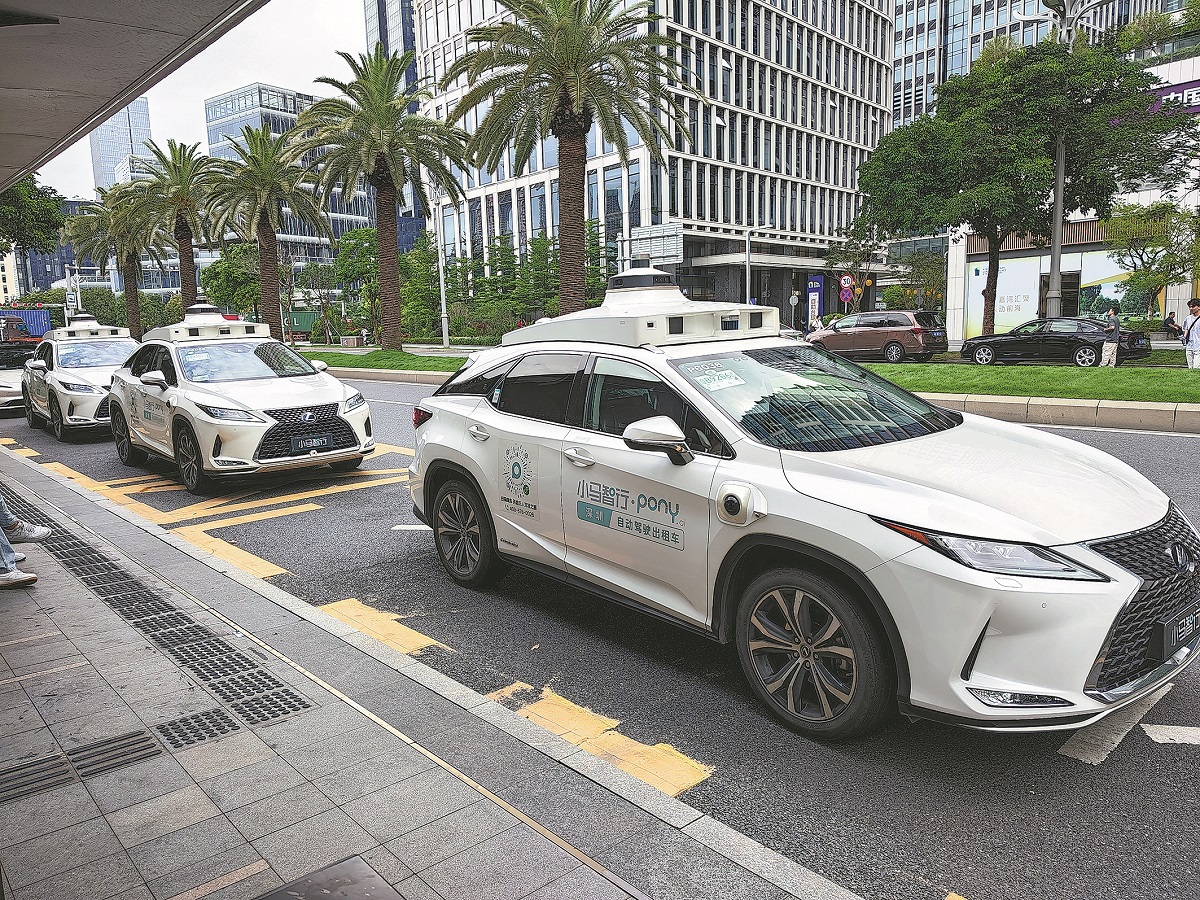How China's robotaxis jumped to top of ranks worldwide
Vast domestic development, favorable policies, tech prowess propel global reach


On a brisk Friday morning in early September, a fleet of light blue cars glided quietly in front of the Amiri Diwan — the imposing building housing the seat of governance — in Doha, capital of Qatar.
For most passersby, the sight probably looked like nothing more than regular vehicles navigating through traffic. But for Pony.ai, the fleet marked something bigger — the official start of its robotaxi testing in the Middle Eastern country.
The leading Chinese autonomous driving company has formed a strategic partnership with Qatar's national transport company, Mowasalat, to advance autonomous driving technology and vehicle deployment in Qatar.
The collaboration came two months after Pony.ai's partnership with Dubai's Road and Traffic Authority in the United Arab Emirates. Robotaxi tests will start later this year, with driverless robotaxis scheduled to start commercial operations in 2026.
Pony.ai's expansion is part of a broader trend of Chinese autonomous vehicle companies stepping beyond their home market at an accelerating pace.
In early September, WeRide announced its robotaxis would soon arrive in Singapore. The autonomous driving company, based in Guangzhou, Guangdong province, said the vehicles will be deployed later this year with a local mobility service provider.
The robotaxis follow the start of WeRide's robobus service on Singapore's Sentosa island in July.
The robobus, equipped with 360-degree vision and capable of detecting obstacles more than 200 meters away, operates on a fixed 1.2-kilometer loop every 12 minutes, connecting three hotels and T Galleria shopping mall.
Since late last year, WeRide's robosweepers have been working along Marina Coastal Drive and at the Esplanade, as Singapore's first commercial autonomous sanitation projects.
Chinese companies have also joined hands with global ride-hailing platforms like Uber to speed up their rollout and expand the availability of their services.
During the International Motor Show Germany, officially known as IAA Mobility, in Munich this month, Momenta, backed by investors such as Mercedes-Benz and SAIC, said it would begin rolling out robotaxi services on the Uber network in early 2026, starting in the German city.
The initial deployments will have safety operators onboard. "This partnership completes a critical piece of our global scaling puzzle," said Cao Xudong, Momenta's founder and CEO.
Uber CEO Dara Khosrowshahi described the deal as a significant step toward delivering "more reliable and affordable autonomous mobility" to users worldwide.
Toyota-backed Pony.ai is partnering with Uber as well, and is expected to first launch its service in a key market in the Middle East later this year, with a goal of scaling deployments to additional international markets in the future.
WeRide is expanding its existing cooperation with Uber to 15 additional cities outside China and the United States over the next five years.
The two companies started their cooperation in September 2024, and launched commercial robotaxi operations in Abu Dhabi, United Arab Emirates, last December, with the fleet to include 50 vehicles by mid-2025.
"We are taking this partnership to a new level," said Tony Han, founder and CEO of WeRide. "This reflects our joint ambition to make autonomous mobility accessible and affordable across the globe."




































